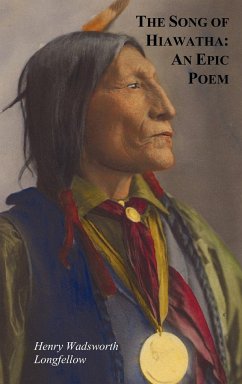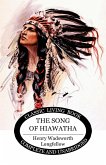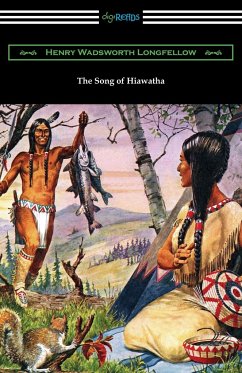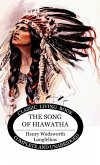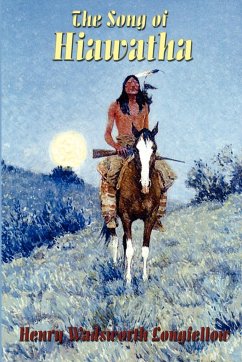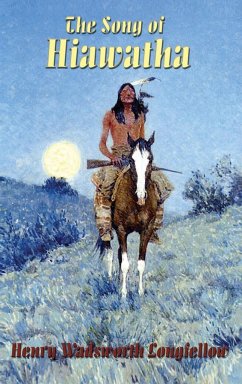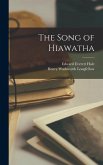The Song of Hiawatha is an epic poem, written in 1855 by Henry Wadsworth Longfellow. This version comes with copious illustrations and with line numbers, it also comprises five other poems: The Skeleton in Armor, The Wreck of the Hesperus, The Luck of Edenhall, The Elected Knight, and The Children of the Lord's Supper. The Song of Hiawatha is about an Indian hero who is based on the legends of the Ojibwe and other Native American peoples. Longfellow's work is a saga in the genre of American Romantic literature, and is not representative of Native American oral tradition. Longfellow had originally planned to call his hero Manabozho, which was the name of a Ojibwe folklore trickster-transformer . However, in his journal entry on June 28th, 1854, he wrote, "Work at 'Manabozho;' or, as I think I shall call it, 'Hiawatha'-that being another name for the same personage." Longfellow was mistaken about this, Hiawatha was probably an Iroquois hero. But as a result of the popularity of the poem, "Hiawatha" was used as a common name for everything, from towns to a telephone company, in the region of the western Great Lakes, where no Iroquois live.
Hinweis: Dieser Artikel kann nur an eine deutsche Lieferadresse ausgeliefert werden.
Hinweis: Dieser Artikel kann nur an eine deutsche Lieferadresse ausgeliefert werden.

